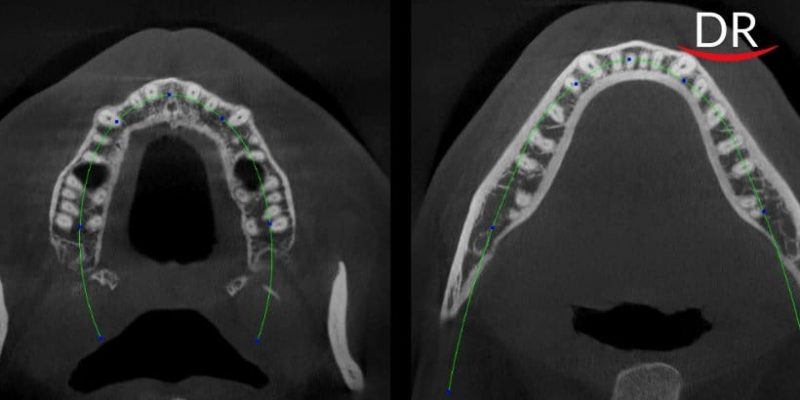Artificial Intelligence (AI) has increasingly become a dentists’ best friend in improving productivity and make the best out of the $33 billion global dentistry market. Though machines are still learning to address certain dental anomalies creatively, the market is already blooming with AI-powered dental diagnostics products. It is projected that the AI tools, as of now can increase clinics’ revenue by 25%. This could happen as a result of software program enhancing the quality of chair time of dentists by slicing down the time wasted on analyzing reports.
Detecting Common Anomalies
Cavity or caries is among the most common dental issues. Specific type of cavities do not get identified during a routine check-up. The rate of missed caries from X-rays is possibly 20% or more. Automated cavity detection is, without doubt, one of the popular AI-based dentistry options that tackle the situation. Hundreds of radiographs (Xray photographs) are fed to machines that study from patterns. Based mostly on this, the cavities can be recognized by the software in a couple of seconds. Equally, an UK based company CT Dent claims to identify an ideal nerve in 4.5 seconds. Nerve injury many a times results in lawsuit where dentist are sued for malpractice.
Dx Vision is a computer vision algorithm that can detect problems within digital X-rays.
Smart Glasses Help with the Bone Structure
Dentem has a software program named Dx Vision that detects anomalies from X-Ray. Afterwards, the physician could put on smart glasses and get real-time imagery of the bone construction of the affected person’s cranium and tooth. This makes the extraction fast and straightforward. The ache to sufferers may be minimized as some options can recommend how a lot of strain must be utilised for various conditions – such as because of the set up of braces. A full 3D scan of the oral cavity may be obtained after seating sufferers on a dental chair. Software recommends procedures that may be executed by the dentist.
Prosthetics and Implants
Tooth loss due to trauma or ailments would possibly require dental prosthesis. AI can establish the underlying points and assist dentists to make an evidence-based resolution.Tooth loss can be single or multiple. In some cases, a single tooth may be missing, and incase of trauma, one or more teeth may be affected. There are dental solution companies that make 3D dentures after analyzing radiographs with the assistance of AI.

Patient Management Made Easy
The purchasers will obtain their annual or bi-annual reminder for a dental checkup from AI-enabled software program. The diagnoses, prescriptions and former interactions inside healthcare organizations are available for dentists. Based mostly on this, a customized therapy plan may be offered. Drawing inspiration from IBM’s Watson platform, Dr John Kois of US had developed Evidentiae, cloud-based software for Dental Care. Other than giving an overall perspective, it gives ideas to improve the aesthetics and functionality of the patient’s dental structure.
The Future Already there!

Smart brushes in the market that reminds folks that they do not brush adequately. Soon these brushes will be able to identify hairline cracks, cavities and upload images into the cloud. The data will be further sent to the dentist who will reach out to the patient. It is to be noted that, in China, a Robo dentist has already carried out the first successful autonomous dental implant surgical procedure whereby two new teeth were added to a woman’s oral cavity. The artificial teeth were created by 3D printing. Such Robo dentists might assist countries which face a dearth of dentists. It was found that around 400 million patients in China require new teeth, but there was high waiting time due to the lack of qualified dental surgeons.
Key Players
- Glidwell.io
- Pearl
- Dentistry.ai
- Dentem
- Orca
- Videahealth
- Dentem
- Promaton
- Dental monitoring
- Cellmatiq
- Denti
- Necois
AI is expected to be used in all aspects of medicine in the coming days. Dentistry will be the first to be benefitted in terms of clinical results, cost reductions, improved access and patient satisfaction.
Little more about Videahealth:
Florian Hillen, executive director of the new startup VideaHealth, first started working on problems in dentistry about three years ago. An employee at the Massachusetts Institute of Technology and Harvard has been researching machine learning and image recognition for many years.His ultimate goal was to apply these technologies in an area that desperately needed them.
Dentistry, although not the initial goal, turned out to be a market that ideally suited the young researcher.
“Everyone goes to the dentist, but roentgens are still the main diagnostic tool in the office. Dentistry lacks a single standard. If you go to three different dentists, you will get three different opinions.”
VideaHealth’s machine learning technologies can introduce a common standard in dental practice. This is especially true given the fact that dental enterprises are turning into large service providers.
Dentists also represent a more receptive audience for the benefits of automation than some other medical professionals. Since they are often very busy, image recognition technologies can be considered as something that will help them work more efficiently and not overload themselves with work.
“Artificial intelligence in radiology competes with the radiologist himself,” says Hillen.“We will help the dentist identify diseases more reliably, more accurately, and earlier.”
According to Hillen, the ability to receive more patients and identify problems earlier, without requiring longer and more invasive procedures, plays into the hands of both doctors and patients.
A year has passed since Hillen founded the company, and he has already attracted investors such as Zetta Venture Partners, Pillar and MIT Delta V, who invested $ 5.4 million in initial financing for the company.
Already, the company is collaborating with dental clinics and organizations throughout the United States.For example, one of the partners is Heartland Dental, a company that operates more than 950 clinics in the Midwest.The company will use its funds for widespread hiring and further research and development.
Source:
- www.techcrunch.com
- www.aithority.com




















Comments